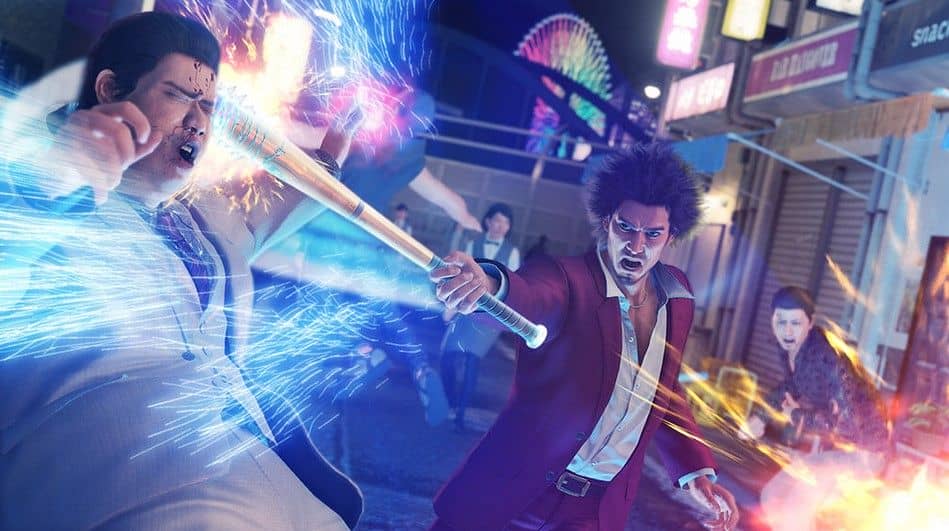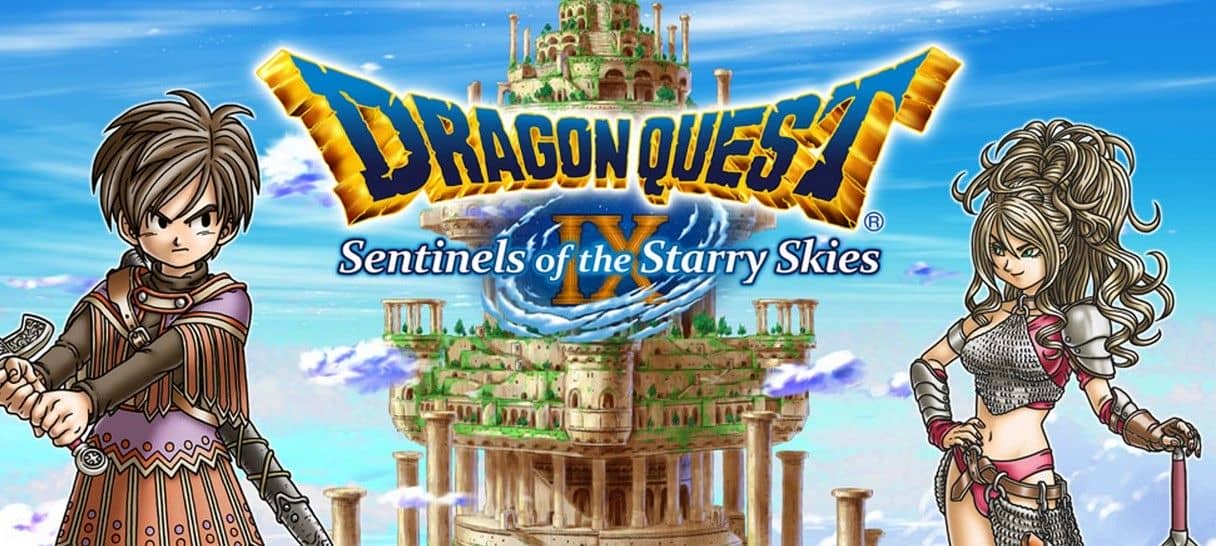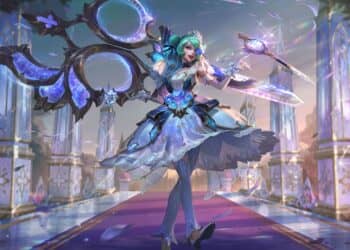Gaming is one of the best ways of escaping the real world, and what better way of relieving the stresses of your job than taking up some RPG jobs? Let’s face it, they don’t come much better than journeying around the world with your loyal companions, even if there is some peril along the way.
Job systems invariably offer the fun challenge of delicately balancing your party with a variety of abilities that will enable you to tackle any foe. They may not be quite as common as they used to be, but there are still numerous options for fans of job tinkering and class swapping.
Here are 11 of the best RPGs with job systems.
Final Fantasy V
We’ll start with the classic, released in 1992 as the Final Fantasy series was racing its way towards RPG legendary status.
The SNES era has aged pretty well, and Final Fantasy V is readily available on the likes of PSN, Steam and most tablets/smartphones. The soundtrack in particular has some classics such as Clash On The Big Bridge, Home Sweet Home, and of course Mambo de Chocobo.
The job system on offer, despite being one of the earliest, still offers one of the most compete selections out there. Before the days of hefty tutorials and hand-holding, you’re left to your own devices here, which actually feels refreshing.
A sizeable job list includes everything you’d expect from Monk, Knight, Thief, and various Mages. As the story is progressed, new assortments are unlocked adding to a total of 22. The GBA/Steam versions include 4 more maverick additions in the form of the Necromancer, Cannoneer, Gladiator and Oracle jobs. With so many possible combinations, settling for the more typical default jobs is certainly ill-advised.
Final Fantasy V has plenty of charm, and Galuf remains one of the funniest party members of the series. The plot features most of the common tropes you’d expect from the time, complete with the rebellious princess and elemental crystals. Still, if you like RPGs with job systems, then the chances are some old-school clichés won’t deter you.
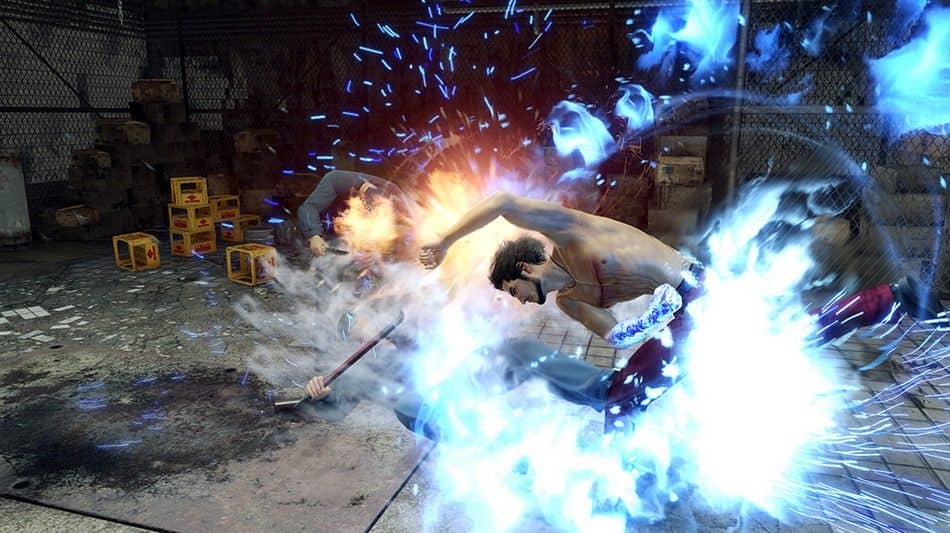
Yakuza: Like A Dragon
A job system is just one of the many bold decisions made within Yakuza: Like A Dragon. Sega shifted the entire genre of their successful Japanese mafia series from action to traditional turn-based RPG.
They also changed up the cast considerably, with a new protagonist and plot that make it the perfect place to enter the series for the first time. After seven previous entries following Kazuma Kiryu, the lead role is now occupied by Ichiban Kasuga, whose own infectious passion for JRPGs inspires countless Dragon Quest references and the turn-based battle system itself.
The multitude of mini-games and sidequests will continuously entertain alongside Yakuza: Like A Dragon’s main story, with its eccentric mix of great characters, mature themes and ludicrous humour.
Nothing typifies the hilarity better than the job system. Options contain the likes of Homeless Guy, who can summon pigeons and spew poisonous breath, or a Musician who whacks enemies with a guitar. Meanwhile, the female party members can charm enemies as a Hostess or dish out some, err, punishment as a dominatrix-esque Nightqueen. Many jobs bear resemblance to the typical RPG classes, but have their own quirks and usually come with striking costumes.
The only downside is the incumbent way jobs are swapped over, but nonetheless Yakuza: Like A Dragon is an outstanding game that any JRPG – and job-system – fan should check out.
- RELATED: Yakuza: Like A Dragon Review

Octopath Traveler
Players nostalgic for the glorious SNES era should look no further than Octopath Traveler. The 16-bit graphics have a gorgeous polish that adds a modern sheen whilst capturing the aura of yesteryear. Eight main characters each have a distinct job class, and partake in eight distinct stories which range from pleasant to truly compelling. The heroes team up to assist each other’s quests, but strangely disappear whenever plot-based conversations take place.
This oddity is made up for elsewhere. Octopath Traveler is a terrific example of a modern turn-based battle system, implementing some clever tweaks that keep you on your toes during the plethora of tough boss battles. These encounters are also where the outstanding musical score shines, delivering wonderful tracks that’ll get your heart racing every time.
As progress is made and your party is expanded, further job opportunities open up. Finding specific shrines allows characters to add secondary jobs to their talent pool. This is a drastic game-changer that suddenly opens up a wide array of different ways to customise your party setup.
Though the eight main stories have their fair share of challenge, beating the absolute final boss requires true mastery of the job system. This is the ultimate test of your ability to juggle the abundance of skills and strategies at your disposal.
- RELATED: Octopath Traveler Review
- RELATED: The best RPG soundtracks of the generation
Final Fantasy XII: The Zodiac Age
Final Fantasy XII: The Zodiac Age is a remaster released in 2017 that goes a step further than the visual overhaul we usually see from definitive editions. In particular, the Licence Board was upended into what is essentially a job system, whereby characters can pick from twelve jobs – one for each Zodiac sign.
With six characters and twelve jobs, the good news is each party member can be assigned a secondary job, meaning you can give everything a bash. Some of these jobs have odd names, so you’ll likely need to give them all a whirl to find the combination that works best for your party.
Final Fantasy XII was not one of my personal favourites within the series, but coupling the new job system with the established gambits make for a wide variety of interesting tactical choices.
This is the most significant of many changes, including a speed-up function to traverse the world far quicker, along with a Trial Mode that grants a good challenge – and grinding opportunity – outside of the main story. As such, Zodiac Age is by far the best way for first-timers to enjoy, and probably offers enough differences for fans of the original to replay.
Dragon Quest VII: Fragments of a Forgotten Past
The seventh entry of the beloved Dragon Quest series is one of the handful to feature a job system. It’s also yet another example of a modern remake that serves as a much more accessible title. An enhanced 3DS version was released in 2016, upgrading the original with better graphics, translations and some welcome Quality of Life improvements.
One beneficiary of this is the job system, since jobs level up based on battles fought rather than experience points. This is dull, but the modern version mercifully reduces the number of battles required to increase job ranks. Dragon Quest VII has a whopping list of over 50 classes, including a huge selection of monster classes. Essentially, characters can find monster hearts and transform into monster avatars along with the more mainstream human-based jobs. Needless to say, this is one of the most extensive job systems out there. And yes, you can play as a Slime.
The story involves a romp through time to restore the long-forgotten lands of the past, which can then be revisited back in the present day. I’ve always enjoyed time travel mechanics where actions in the past can affect things in the present, such as in Chrono Trigger or Zelda: Ocarina of Time.
A fair word of warning: don’t undertake Dragon Quest VII unless you are willing to sink in a huge amount of your time. How Long To Beat estimates an average of 73 hours for the main story, with that figure reaching well over a hundred if side quests are undertaken. This is a game for lovers of good old, lengthy JRPGs.
Final Fantasy Tactics: The War of the Lions
Final Fantasy Tactics may not be a main-series entry, but it enjoys cult status among fans. The mature, political story is improved upon within the 2006 PSP remaster, with clearer translations to go with the enhanced graphics.
Of course, the gameplay is drastically different to most games on the list, with a grid-style tactical battle system that requires plenty of thought before engaging in combat. Players must consider how to set up the party based on both the enemy squad as well as the stage itself, which may have terrain that favours certain jobs.
The job system is one of the most varied and challenging, with 22 in total. The most powerful of these will not open up unless characters have fulfilled requirements such as levelling up several other jobs sufficiently. It’s rewarding to earn the best job types, and all the more devastating if these characters succumb to permanent death if they are defeated.
The setting of Ivalice is also home to the events of Final Fantasy XII, and Balthier was shoehorned in as a playable character. Speaking of cameos, there’s one from Cloud Strife who can also be recruited into your team. If that doesn’t convince you to try out Final Fantasy Tactics, surely nothing will.
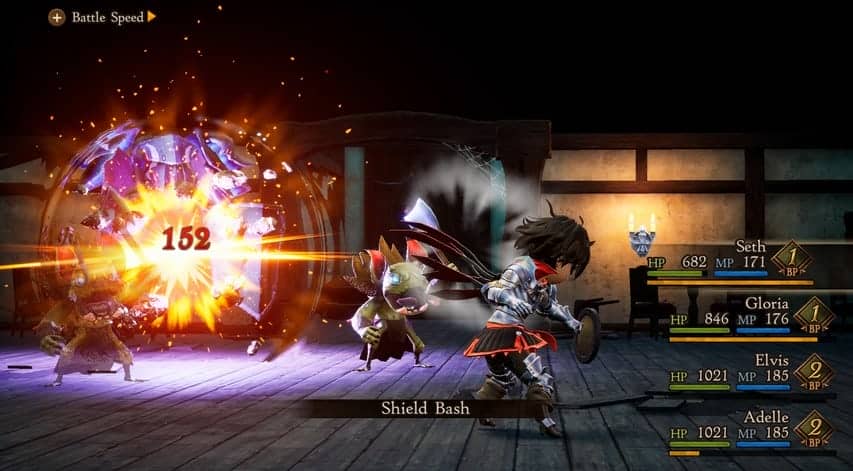
Bravely Default 2
Not to be confused with Bravely Second, which is a direct sequel to Bravely Default, Bravely Default 2 features a completely different cast of characters and a brand-new plot. For this reason, it is a perfectly good starting point for those wishing to skip the 3DS release and head straight to the Nintendo Switch.
Bravely Default 2 is another RPG that leans into the old-school with a turn-based battle system that has some tweaks, allowing characters to build up brave points to opportunistically use consecutive attacks. The plot doesn’t push too many boundaries, and honestly wouldn’t be out of place in the 90s. As such, Bravely Default 2 is unashamedly aimed at JRPG traditionalists.
There are 24 jobs, known as Asterisks, which are generally unlocked one-by-one throughout the tale. Most are acquired by beating mandatory bosses, but a handful require the completion of certain quests. As a heads-up, you’ll actually require all jobs in order to reach the true ending.
Characters can be equipped with two jobs at once, making for a plethora of options that can actually feel a little overwhelming when your repertoire is sufficiently expanded. There’s no right or wrong, just a ridiculous array of different ways to overpower your foursome.
Fire Emblem: Three Houses
After some solid handheld titles, Fire Emblem: Three Houses shot right to the top of the sales list within the long-running series, shifting millions of units with something a little outside the norm.
Fire Emblem: Three Houses keeps the tried-and-tested strategic grid combat but hijacks the increasing trend of including character relationships and bonding events. These were implemented in the likes of Fire Emblem: Awakening but go a step further in Three Houses. The main character is a teacher at Garreg Mach Monastery, which bears a striking resemblance to a certain Witchcraft and Wizardry School. If a Harry Potter/Persona crossover sounds good, then Three Houses may be the perfect game for you.
Unlike many others in the series, character classes can be changed, making the format analogous to a job system that keeps you tinkering in search of the best party. Whilst this has always been a challenge within Fire Emblem, it’s great to teach your characters new roles, which allows you to ensure your favourites always remain in your team.
Decisions are made around which house to join, how to stack up your troops, and of course which romantic partner to pick at the end. As such, Fire Emblem: Three Houses will constantly keep you second-guessing yourself. The biggest decision of all is whether you opt for Classic mode, which puts your troops at risk of permanent death if they fall in battle. There’s nothing worse than losing a beloved member of the class, but surely switching off the setting altogether is taking the easy way out!
- RELATED: 15 of the best Nintendo Switch RPGs
Final Fantasy X-2
It’s fair to say Final Fantasy X-2 took a few people by surprise upon its release in 2003, and ended up as a bit of a divisive title. Not only were direct sequels in the Final Fantasy series unheard of, but a J-Pop soundtrack and the dramatic shift to the tone didn’t please everyone.
The remastered Final Fantasy X/X-2 HD bundle is available on virtually every platform, and I suspect this sequel may have been an afterthought to many of the players clamouring to replay Final Fantasy X, which is certainly one of the best in the series.
However, X-2 offers a great chance to revisit the world of Spira where the turn-based combat is replaced with a new battle system that places more emphasis on timing. Furthermore, the Sphere Grid is supplanted by Dresspheres and the Garment Grid. This is essentially a job system with plenty of imaginative classes that come with their own extravagant costumes.
The fact that Dresspheres can be switched over in the heat of battle adds another element to your strategy, and is just as well since there are only three playable party members. Meanwhile, a choice of different Garment Grids allows you to tinker some different setups – each Garment Grid bestows bespoke stat boosts, but some allow more jobs than others to be equipped at a time.
Final Fantasy X-2 is another game I think has aged rather well. J-Pop soundtracks are far more commonplace in the West nowadays, and by now you won’t be taken aback by the zany energy.
Dragon Quest IX: Sentinels of the Starry Skies
Dragon Quest IX was the first handheld-only title in the series, released exclusively on the DS. This may currently make it less accessible than others on the list, but it’s surely only a matter of time before a remaster or definitive edition makes its way to a more modern system.
Sentinels of the Starry Skies features an angel-like protagonist, who crashes down to earth and must regain their powers to assist the mere mortals of the world. It takes a little while to get going, but eventually presents a job system with 12 different vocations that can ultimately be switched around quite freely.
A notable feature of Dragon Quest IX is that the characters themselves are also fully customisable. Each member of the party – including the protagonist – can have their full appearance adjusted along with their job class.
Overall, it’s a bit of a double-edged sword. It’s nice to have more control over the party, but the result is a benign group of characters that lack personality and camaraderie. There is still an overarching linear plot, making Dragon Quest IX a JRPG with some features more commonly associated with WRPGs. This departure from typical Dragon Quest adventures may appeal more, or indeed put you off.
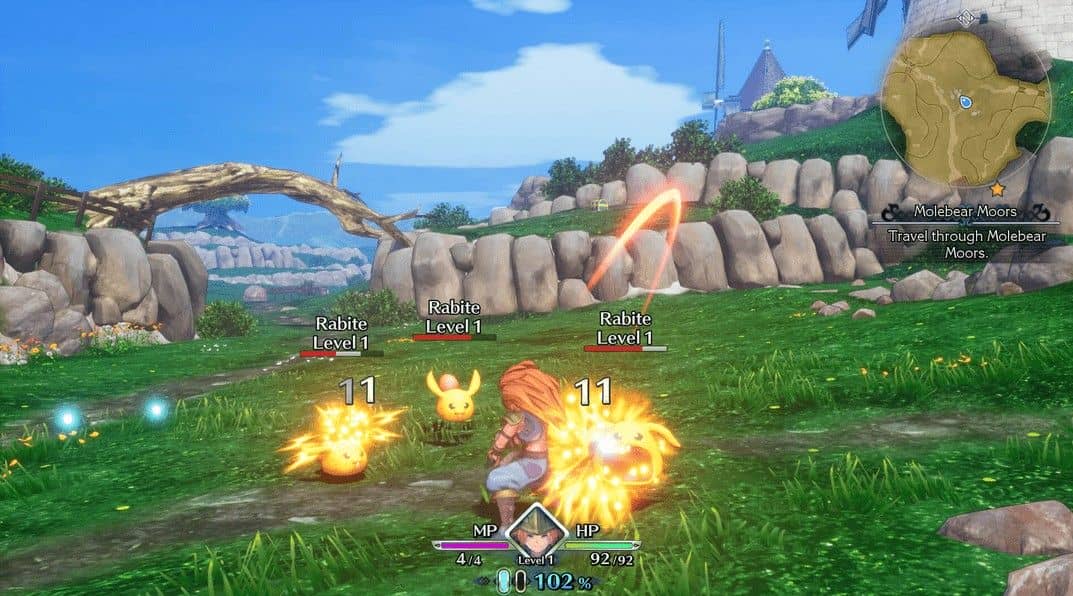
Honourable mention: Trials of Mana
The 2020 remake of Trials of Mana was a chance for Western players to finally enjoy a mid-90s release that didn’t make it out of Japan. Granted, a port of the original was released in 2019 within Collection of Mana but the modern, full 3D reimagining is by far the best option of the two.
Trials of Mana is a lively, vibrant RPG with addictive action combat that isn’t overly complex but remains incredibly fun for the entirety of its fairly modest runtime. Lasting no more than 25 hours on the first playthrough, it’s also a terrific option for players without bags of time on their hands.
It doesn’t quite have a job system per se, but each character has a distinct class that gets upgraded throughout the adventure, and branches out towards different paths. This results in some tricky decisions of which abilities you wish to retain, and some forward-thinking is definitely advised. The other aspect that may interest job system fans is that the party is picked at the start of the adventure, with three selected from a choice of six. Once you’ve selected your trio, you’re stuck with them until the end.
The choice is crucial, as your ‘main’ character of the three dictates which of the game’s slightly different plots will play out. If you fall in love with Trials of Mana’s classic, old school vibe then this provides a good way to vary your next playthrough by opting for a different main character.
- RELATED: Trials of Mana Review
- RELATED: 20 short RPGs that won’t consume your life
Conclusion
Job systems are still around if you know where to look, and as it happens the majority of the best have been remade or remastered.
There is a fair bit of variety above, making a personal recommendation completely dependent on what you’re looking for. Whether it’s a modern twist or a nostalgic journey into the past, there’s something on the list for you. Happy jobhunting!
Are there any other great RPGs with job systems that we’ve missed? Comment below!

